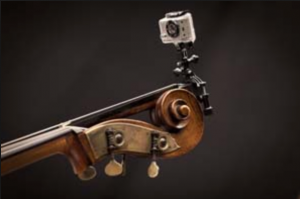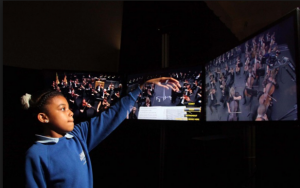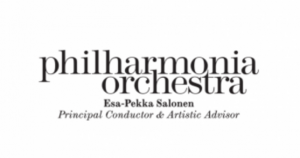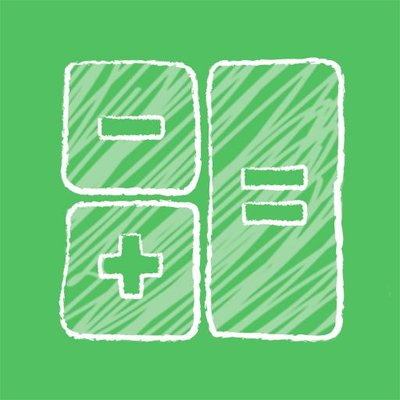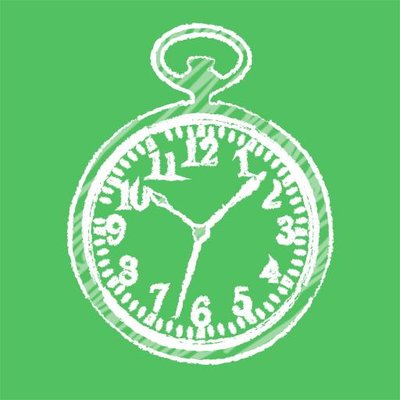Mr Richard Bristow, Director of Music here at WHS, looks at school partnerships and how external groups can enhance the academic and co-curricular programme, discussing a new partnership between WHS and the Jigsaw Players.
Partnerships have become increasingly important to schools since the turn of the Millennium, with a significant number of schools in both the State and Independent sectors working together in various ways. Broadly speaking there are two different types of school partnership: formal and informal.
Formal partnerships
A formal partnership will often involve a strategic merger between two or more schools, who might operate under the same trust with a central CEO or Executive Headteacher. The GDST, of which Wimbledon High is proudly a part of, is in this type of partnership with 25 schools (including 2 Academies) across the UK working closely together to provide the very best education for girls. In the State sector, this might involve the merger of an Academy Trust with several different schools working under the same central leadership team; a local example would be the Harris Federation, where 47 different academies – Primary and Secondary – operate within the same charitable trust.
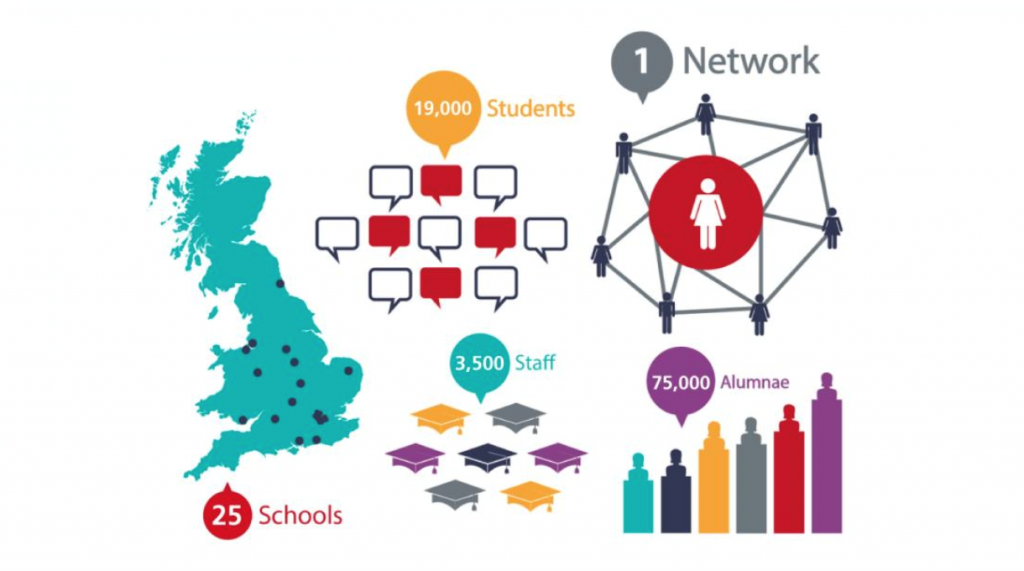
The GDST Network in numbers
Informal partnerships
The informal partnership, however, involves smaller links between schools that retain their autonomy and own decision-making at a strategic level. This could be between two similar schools – for example the OWLS project between Oxford High and Wimbledon High (OWLS standing for Oxford and Wimbledon Leading Scholarship). This is where two schools work closely together to craft a vision to enhance an aspect of their shared goals, sharing resources, good practice and enabling the pupils and staff to develop their skills.[1]
These informal partnerships also exist between Independent and State Schools, as detailed below.
Teach Together
In late 2014, the Department of Education granted a significant amount of money to various different partnerships across the UK, focusing specifically on the primary curriculum. Various different projects occurred throughout the country, from developing coding skills to organising MFL challenge days. Wimbledon High was involved in this project, forming a Teach Together partnership with St Boniface RC Primary School to engage pupils with the science curriculum through storytelling and narrative. This partnership continues to this day with weekly links between the schools with our Enrichment programme.
This partnership has significant benefit to both schools, and this is essential for the partnership to work effectively. Both schools need to put in and get something out of the partnership to avoid it from lacking equality. In this case, WHS girls from Year 11-13 consolidate their scientific knowledge and understanding by teaching scientific concepts in a new way to Key Stage 2 pupils. This not only helps the pupils they are teaching, but develops the older pupils’ ability to communicate with others, encouraging them to look outwards, to support others and be ready to shape the society in which they live. Thus partnership work also meets one of Wimbledon High’s key aims. By ensuring both sides of the arrangement are getting something they require out of the partnership, it is far more likely to succeed. If it was a one-sided agreement, where only one side was gaining from the arrangement, the chances of success would rapidly diminish.
When asked the question ‘Have you seen notable progress?’ the feedback is overwhelmingly positive from both sides, including
- From WHS Staff: “Yes, in interest & excitement in science. Pupils have produced projects which reflect the time they have spent to continue on these themes & also class room displays linked to our visits.”
- From WHS Pupils: “I get to see the delight of the pupils in learning new things… developing my confidence and resilience” and “[I have more] confidence in my abilities as I am able to fully teach new concepts to children in maths. [I have] an insight into how far I have come with maths as I reflect “
- From St Boniface Pupils: “The lesson I enjoyed the most was when we went to Wimbledon High School and learned about Light. I have enjoyed going outside to try new experiments”
SHINE
WHS also hosts the nationally-recognised SHINE programme. This is an education charity seeking to turn potential into success, and at WHS this is presented as ‘Serious Fun on Saturdays’, with 24 Year 4 and 5 primary pupils coming to WHS to learn a range of topics based around the idea of ‘Reaching for the Stars’. Some of the activities include making frisbees in DT, learning to bake, understanding more about astrology in Geography and learning how to perform as an ensemble in Music. Each pupil is given a WHS mentor from Year 12, allowing these pupils to develop their mentoring skills.
External agencies
These links between schools – where skills and resources are shared to develop both sides of the partnership – are of vital importance. However, schools are also increasingly offering new partnerships using external agencies and providers which are open to the whole local community.
A new partnership from September 2018 is the partnership between Wimbledon High School Music Department and the Jigsaw Players. The Jigsaw Players are a Not-for-Profit concert series based in Wimbledon, performing world-class chamber music and jazz. They run educational projects for local children, sponsor young up-and-coming jazz and classical ensembles, and heavily subsidise all their concert ticket prices, to help ensure music is accessible to all in Merton.[2]
WHS and the Jigsaw Players
This accessibility is increasing further with this new partnership with WHS. The Jigsaw Players will host four different events throughout the academic year 2018-19 focusing on composition skills and female composers via workshops and concerts. These are completely free to attend and are open to all.
The workshops will allow pupils from year 9-13 from WHS and local schools to understand more about how to write for chamber forces – specifically string quartet – enabling a higher quality of composition work required for GCSE and A Level Music courses. With numbers of pupils studying the subject across the country in sharp decline[3], schools are either struggling to offer Music as an academic subject or have small numbers doing so outside of the timetable. As the numbers are small, funding can be hard to secure as the impact lacks large-scale focus. Against this backdrop, these partnerships are of even more importance as they offer a chance for all schools – state and independent – to engage with curriculum enrichment at zero cost.
Composition is frequently the area of compulsory study at GCSE and A Level which is the most complex to teach and learn and is the area where examiner marks are frequently debated owing to the more ‘subjective’ nature of composition. This will not change as long as composition is a compulsory part of GCSE and A Level Music, but what we can do as a school is to create a time and space for teachers, pupils and professional musicians to come together to discuss the challenges and work together on finding potential solutions. This collaboration gives confidence and allows for networking – something vital for a subject like Music which are often staffed by only one teacher for the entire school.
Free tickets to the workshops can be booked below:
Workshop 1 https://www.trybooking.com/uk/book/event?eid=4118& 3rd October 4:15-6:15pm M11
Workshop 2 https://www.trybooking.com/uk/book/event?eid=4121& 14th February 4:15-6:15pm M11
The concerts are also open to all, focusing on the chamber music of female composers. This clearly links the chance to hear professional musicians with the overall ethos of girls’-first education, championing music which often struggles to find a voice in the canon of Western Classical Music. This type of cultural enrichment is universal and has significant benefits to overall academic progress[4].
Free tickets to the concert can be booked below:
Concert 1 https://www.trybooking.com/uk/book/event?eid=4120& 3rd December 7pm Senior Hall
Concert 2 https://www.trybooking.co.uk/4122 7th May 7pm Senior Hall
Summary
The most effective partnerships are ones characterised by a shared vision and passion between the schools and agencies agreeing to work together. Without this shared goal, partnerships become forced and subsequently lack effectiveness, reducing impact. Honesty, openness and clear communication are central to ensuring success for all stakeholders.
The new partnership with the Jigsaw Players is an exciting opportunity to work with local professional musicians and other GCSE and A Level pupils and staff, allowing new networking opportunities on a staff and pupil level and encouraging all-important discussions about Music as an academic subject. Whether you would like to attend as an active participant in the workshops or simply as a member of the audience listening to the music by composers past and present, you are warmly invited to become part of our shared passion for all things musical.
[1] See OWLS Quarterly here http://www.wimbledonhigh.gdst.net/userfiles/wimbledonhighmvc/Documents/Sixth%20Form/OWLS/OWLS%20Quarterly-First%20Edition%2C%20February%202018.pdf
[2] http://www.jigsawplayers.co.uk/about-us/
[3] https://www.economist.com/britain/2018/03/01/the-quiet-decline-of-music-in-british-schools
[4] https://www.sciencedaily.com/releases/2018/03/180326140244.htm





